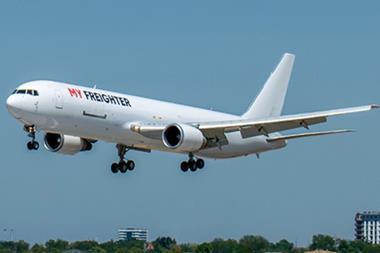Asia Pacific airlines saw increased international air cargo demand in October ahead of an anticipated Christmas e-commerce boost.
"Despite some moderation in trade activity, October saw Asia Pacific airlines post a 3.2% increase in international air cargo demand as measured in freight tonne kilometres (FTK), when compared to the depressed volumes recorded in the same month last year," said the Association of Asia Pacific Airlines (AAPA).
Subhas Menon, AAPA director general, said that "the region’s airlines posted a second consecutive month of growth in international air cargo demand in October, ahead of major promotional retail sales periods such as Singles Day, supporting higher volumes of e-commerce shipments going into the year-end festive season".
He added: "As a result, the decline in international air cargo demand narrowed to 5.4% for the ten-month period.”
However, he said it was too early to determine whether the improved market conditions will continue, following many months of challenges.
This is partly because of concerns over "continued declines in export orders".
Looking ahead, Menon said: “As for air cargo markets, the recent uptick in demand is welcome, although the outlook remains uncertain, against a background of continued declines in export orders. Overall, the region’s carriers remain focused on improving financial performance following three years of steep pandemic-led losses, whilst delivering the highest levels of customer service.”
The AAPA's preliminary October 2023 traffic figures also showed that offered freight capacity expanded by 8.9% year-on-year, leading to a 3.3 percentage point decline in the average international freight load factor to average 61.2% for the month.
Data for passenger operations showed a combined 25.3m international passengers flew on the region’s carriers in October, 102.8% more than the 12.5m recorded in the same month last year.
Demand averaged 80.5% of the corresponding month in 2019.
https://www.aircargonews.net/airlines/asia-pacific-airfreight-demand-hampered-by-prevailing-weakness-in-trade-flows/















